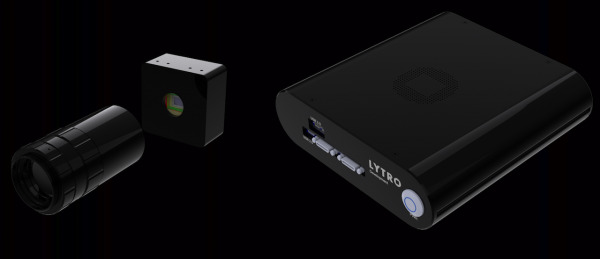Lytro Cuts Deals With NASA And DoD For Camera Dev Kit
Innovative light field camera specialist Lytro has inked new deals with NASA and the US Department of Defense, among others, launching its Lytro Platform and companion development kit for pushing new ways of implementing the technology. The Lytro Development Kit will consist not only of software but of key parts of the Lytro hardware, like a 41-megapixel camera sensor with C-mount f/2.0 lens, and a dedicated prototyping board, giving third-party developers and hardware manufacturers hitherto-unavailable access to the light field processing engine.
Exactly what those companies – which also include "a major industrial partner that develops a range of products for government applications," Lytro teases – will do with the kit remains to be seen. Lytro is predicting new purposes in holography, microscopy, architecture, security, and more.
Heat field analysis to pick out humans among environments with greater accuracy and discrimination could be one application, the company suggests, though the light field technology could just as easily be turned to analyzing soil samples.
NASA, for instance, is signing up so that its Jet Propulsion Laboratory – responsible for the Curiosity rover currently trundling around Mars – can experiment with new cameras for future space missions. The US Army is looking at night vision possibilities.

While they'll own the Lytro Development Kit, Lytro itself will remain involved with each partner. The company will act as a "strategic partner" and help to automate any trickier image processing needs, and even produce custom hardware should it be required.
"In the future," Lytro says, "we will release other new products as part of the Lytro Platform."
What it isn't is cheap. The Lytro Development Kit will come in at $20,000 – in contrast, the flagship ILLUM camera is $1,599 – though the degree of underlying access to things like the image generation processes is far deeper than either of the two consumer devices the company has released.
SOURCE Lytro
